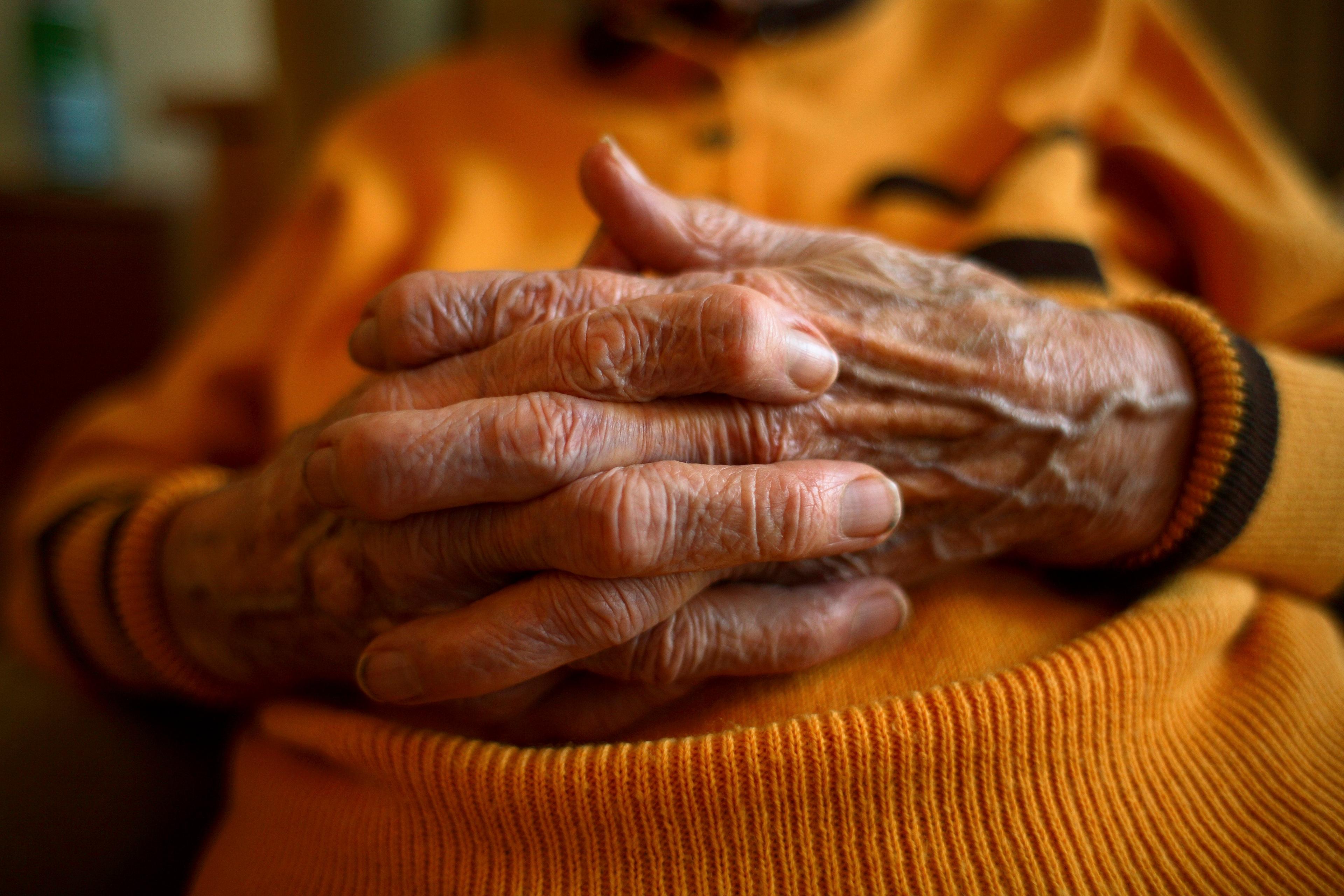Think about a person who has suffered from depression and chronic post-traumatic stress disorder (PTSD) for many years. She has received on-and-off treatment with variable results. She feels hopeless, has continuous negative thoughts about herself, and wants to die. What should this person do? If she lives in Belgium, a possible course of action, sanctioned by law, is to speak with her psychiatrist or therapist about dying with a doctor’s assistance. As a psychiatrist from Belgium, I have encountered cases similar to this one – not through direct involvement with assisted death, but as a therapist working with patients who sometimes raised the issue.
In most countries that allow assisted death, it is available only to those with terminal illnesses such as cancer or the motor neuron disease ALS, but in certain countries it has been extended to some people on the basis of mental illness. The Netherlands and Belgium recently marked the 20th anniversary of their assisted death laws, and in both countries people can request assisted death based on, say, chronic depression, bipolar disorder, schizophrenia, PTSD or any other mental disorder. The Netherlands has seen a slow but steady increase in the official number of cases of assisted death for a psychiatric disorder: from 13 cases in 2011, to 60 in 2016, and 115 in 2021 – a total of 647 in the past decade.
To some, this practice might seem understandable; to others, it might seem unthinkable. Regardless of one’s intuitions, the conversation about assisted death for mental disorders is pressing. Canada is in the middle of a heated debate on this very issue. Though government officials hit the pause button on initial plans for a rollout in 2023, the country continues to debate the expansion of its current assisted death law to include mental illness starting in 2024.
‘Assisted death’ is an umbrella term that refers to both assisted suicide and euthanasia. Both involve a physician providing a lethal drug at a person’s request. In the former, a physician prescribes the drug, and the person then ingests it on their own. In the latter, the physician is present to carry out the act of ending the person’s life through an injection. Along with Belgium and the Netherlands, Luxembourg also permits assisted suicide and euthanasia based solely on a mental disorder, while Switzerland allows for assisted suicide (but not euthanasia) in such cases.
Where assisted death is legal, there are typically three key requirements for a person to be eligible. First, they must be decisionally competent and their request voluntary. Second, their suffering must be unbearable, with no prospect of improvement. And, third, their condition must be deemed ‘irremediable’, or incurable.
There is an extensive professional debate among clinicians, ethicists, philosophers and lawyers about whether there are good reasons to end the lives of some people with mental disorders. Ethically speaking, typical arguments in favour of expanding assisted death laws are that we should respect people’s wishes to make decisions about their death, and that relief of suffering should prevail, regardless of its source or cause. Proponents argue that the same standards used for diseases such as cancer should apply.
The question is: can we use the same standards for mental disorders?
Take the requirement that someone’s condition be incurable. Dutch and Belgian professional guidelines for assisted death state that a person’s remaining treatment options should be assessed according to the objective standards of ‘current medical understanding’. But with mental disorders, incurability is ambiguous. There are no objective signs, lab tests or scans to help clinicians identify whether a mental disorder has reached a ‘point of no return’. And there are no straightforward ways to distinguish a curable from an incurable mental disorder.
In a comprehensive review of scientific research on the curability of depression, my colleagues and I found that there is no objective standard of incurability for clinicians to hold on to. The commonly used term ‘treatment-resistant depression’ typically means that a patient has had two unsuccessful trials with antidepressants; it is not a synonym for ‘incurable’.
Furthermore, though one might expect that a long history of symptoms necessarily corresponds with poor long-term outcomes, our research found that is not the case. If a patient has had symptoms for many years and now asks for euthanasia, clinicians have no objective way to assess whether that person will recover or not. Unlike in cardiology or oncology, psychiatrists lack well-validated tools to predict how a patient will respond to treatment. There are now novel methods for prediction using machine learning, but these are not ready for clinical practice. The best models show that the prediction accuracy is, at best, at chance level – like flipping a coin.
The confusion about standards for incurability is reflected in actual practice in troubling ways. In an in-depth study we conducted of 74 Dutch cases of psychiatric euthanasia from between 2011 and 2017, all patients were considered ‘incurable’. Most patients were women with depression and personality difficulties, and all patients had experienced significant, chronic suffering for many years. Astonishingly, however, more than a quarter of them had not tried psychotherapy, and a similar portion had never been hospitalised. It is hard to see how a condition can be considered incurable when a first-line treatment like psychotherapy has not yet been deployed.
It is conceivable that precision medicine models will improve in the future, making predictions about someone’s chances of recovery more accurate. Time will tell. But that would not settle the question of what we mean by ‘incurable’.
The real problem might well be psychiatry’s struggles to define its core concepts. It’s not yet settled, for example, what exactly a mental disorder really is, and debate on that point is heated. Similarly, psychiatry lacks universal agreement on the definitions of ‘cure’ or ‘recovery’, and many candidates exist. Recovery can refer to the relief of symptoms, for example, or to a broader psychosocial meaning that involves finding purpose.
The fuzziness of such concepts underlies some of the difficulties we see in the debate about assisted death for mental disorders. Some conditions demand not only medical treatment or talk therapy but social remedies. In fact, one of the only robust predictors of outcomes in depression that we identified in our review was social support – which can include, for example, having close confidants or being able to receive help when it’s needed. Social connection might not directly impact the chances of recovery for those with cancer or neurological disease, but it can for people with depression. We can see how this complicates the story: it dramatically reduces the pool of people whose condition can be deemed ‘without remedy’.
If we think more broadly about what counts as a ‘remedy’ for those with mental illness, it brings up inevitable social justice questions as well. Consider the gender gap: the consistent finding that among people receiving euthanasia for mental disorders, 69 to 77 per cent are women. In my team’s study of Dutch psychiatric euthanasia cases, 36 per cent had a history of severe sexual or other kinds of abuse. Gender-based violence is a major public health issue that affects one in three women worldwide, and for which mental healthcare and prevention are lagging. When there is evidence that a policy, particularly one that involves ending lives, may reflect or deepen pre-existing inequities, that should give us pause.
The lack of objective standards and social justice concerns form a worrisome combination. Medicine is increasingly aware of the risk posed by clinicians’ biases – including sexism, racism, ableism and ageism. Indeed, clinicians’ own subjective dynamics are likely to affect whom they deem eligible for euthanasia. For example, euthanasia guidelines direct clinicians to assess how ‘palpable’ they find their patients’ unbearable and hopeless suffering. In the Dutch cases we studied, clinicians used the label ‘palpable suffering’ almost exclusively with regard to patients with personality disorders. This is troubling because it is well known that clinicians often view people with personality disorders negatively, as ‘difficult’ or ‘hopeless’ individuals.
Of course, one could argue that people will inevitably suffer, unbearably so, due to all sorts of social issues, and that certain structural injustices won’t be solved during our lifetimes – so we should accept that for some, death is the best option available. But there is something cynical and nihilistic about that perspective. As members of a society, we must hold ourselves accountable and recognise our overriding duty to mitigate the harms that people with mental disorders experience.
Debates about assisted death for mental illness often turn to the Benelux countries for evidence that this practice is safe. Yet the European Court of Human Rights recently ruled that Belgium must amend its oversight system. The charge: Belgium does not guarantee an independent and fair review of euthanasia cases. Currently, doctors on the Belgian oversight commission need not disclose their role as providers in a particular euthanasia case under review. In other words, they can participate in examining their own cases.
Canada’s ongoing public discussion of assisted death offers a chance for people across the world to reconsider the debate based on ethical analysis and available evidence. That means taking into account the current deficiency of the standards and concepts used to support this practice. When we do so, it is difficult to see how we can ethically justify ending the lives of people with mental illness.








